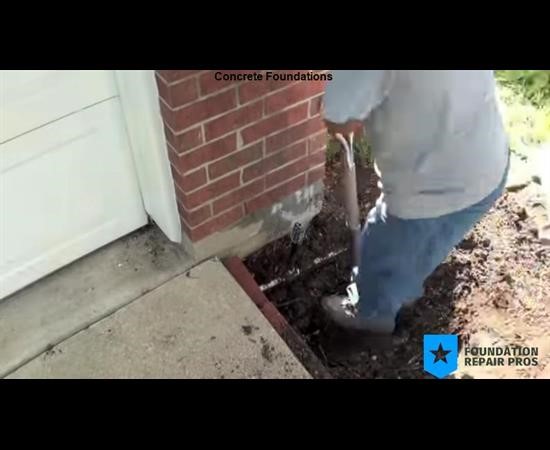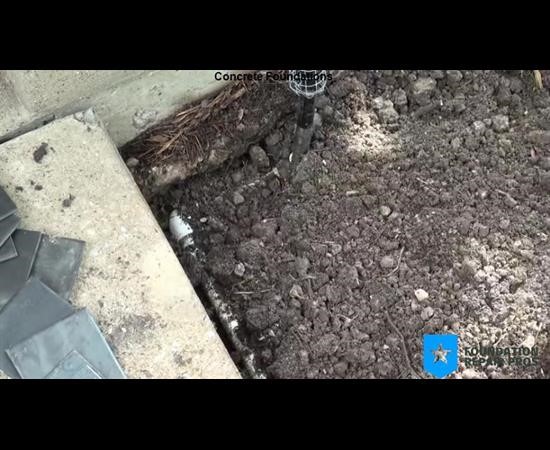
Concrete foundations are the basis of most buildings around the world. These include homes, commercial buildings, and other structures. Concrete has been used for foundation purposes for over a century. There are many types of concrete foundations available, including frost-protected concrete foundations and slab-on-grade foundations.
A concrete foundation is a vital component for new construction, as it provides the base for the structure. The structure is supported by concrete, which in turn transfers the load to layers of rock or soil below. This ensures that the structure is safe. However, the foundations must be strong enough to withstand vibrations.
Concrete foundations can be shallow or deep, depending on their depth. The most common type of foundation is the shallow one, which has a mould carved into ground. These are typically inexpensive and durable. However, sewer and drainage lines need to be installed before the slab is poured, which can cause a plumbing problem. Another type is called a stem wall slab. This foundation has a footer and is then surrounded by blocks. This type of foundation is typically more stable and can withstand freezing conditions.
Concrete foundations are an essential part of a building's structural structure. They can be made from concrete masonry or cast-in-place concrete. However, they are not the most energy-efficient option for your home. A foundation building process requires precision and careful measurements. Additionally, the foundation cement must be placed precisely in the proper location in order to minimize the chance of damage.
The depth of a house foundation is based on the type of soil in the area. Different soil types have different bearing capacities. Sand and gravel, for example, have a higher bearing capability than clays or silts. Deeper footings may be necessary in colder climates.
The type of soil used, the number of columns and other structural elements of your building will affect the depth of your footing. It can be as shallow as half a meter or as deep as five foot deep. Sometimes, it is impossible to build a foundation. In these cases, the house must be supported on piles. The type of soil and the height of the building will determine the depth of a foundation.
As a general rule, foundation walls should be six to ten inches thick. The foundation walls should be three times thicker than the basement walls. The foundation wall must not be lower than the walls of masonry. The depth of the foundation must be determined according to the national building codes.
In addition to foundation depth, there are other factors that determine the strength of a foundation wall. When properly designed, plain concrete foundation walls can be used as serviceable structures. To provide strength for weak walls or to handle more loaded conditions, reinforcement may be required. For reinforcement walls, the horizontal and vertical spacing of reinforcement should be 48 inches in center.

Before choosing a foundation, you should determine your skin undertone. This will make the foundation shopping process easier. This will allow you to choose the foundation shade that best suits your skin tone. You can find labels on foundations that indicate the appropriate shade for you.
You can use different tools depending on the type of foundation you want to apply. You should invest in tools that will give you a smoother finish. You can also try using a primer to make your foundation last longer. Apply a thin layer before you apply your foundation to allow it to dry completely.
There are two basic types of foundations: powder and liquid. Liquid is the easiest to work with. It is recommended for combination or dry skin types. For oily skin types, choose a powder foundation. It provides greater coverage and is easier to blend.
For beginners, it is important to match the foundation shade with your skin tone. The right foundation will help you blend in with the skin and conceal imperfections.
The foundation is the lower part of a building. Its primary function is to transfer the weight of a structure onto the soil underneath it. There are many types. The purpose of each type is to distribute the weight of a structure over a wide area of soil, preventing unequal settlement. The foundation also serves as a leveling surface for a building's superstructure.
An individual footing is another type of foundation. These are used when the load on the columns of a building is greater than the soil beneath it. Individual footings are made of concrete and are usually square or rectangular in shape. The size of these foundations is calculated based on the total load that the columns will bear.
The foundation you choose is crucial for structural stability and can impact the construction cost. The type of foundation you choose depends on your location, climate, soil conditions, and budget. However, in general, a building will have one of three types: a full basement, a daylight basement, and a concrete slab on grade.
The rectangular footing is the most popular type of foundation. It's used for buildings up to five stories. Its design distributes the weight of the load-bearing wall evenly on the soil beneath. It also helps protect the building from natural disasters.
Building foundations are a key component of a building's structural integrity. The foundations should be a minimum of 3 inches deep to protect the building against soil shrinkage and swelling. They also need to be placed in a location that won't be affected by future construction work. Several foundation designs are available.
The most common type of foundation is the individual footing, which is a concrete pad placed under individual columns. These foundations can support heavy structures, and are commonly used for high-rise buildings. They can also be stronger than spread footings. There are two types: pile foundations and beam footings.
Another type of foundation is the slab foundation. This foundation is made of a concrete slab that is 4" to 6" thick in the center. It is then placed on a layer of sand, which acts as a cushion and drainage system. Slabs work best in homes that are located in warm climates and not exposed to freezing ground. They also provide better protection against termites.
A building foundation's primary function is to distribute weight evenly and prevent excessive lateral movement. A properly-built foundation prevents uneven settlement of the structure, which can lead to structural problems. Project managers should double-check the measurements and accurately measure foundations. They should also ensure that all project workers follow the same set of plans.
A footing is a part of a building's structure that is directly attached to the ground. It transfers loads to foundation, which is the lower part of the structure. These two structures are often called "same". The footing and foundation must work together when a building is built.
A footing is shallow and can be as thin as seven inches. It is also known by the name wall footing. These structures are typically used to support load-bearing walls. The footing is usually placed first, and the walls and slab are placed over it. Footings can also be used for slabs.
Foundations are generally deeper and wider than footings. The former is often shallower. A footing is a structure that distributes loads over a large area. Concrete, masonry, and brickwork are all common options for footings. Both the foundation and the footing serve the same purpose. They ensure that the building's structural integrity is maintained.
A pier is a concrete column that is placed between the footing and the ground. The pier may also be mechanically anchored. The pier and footing connect by rebar. When the pier is built, rebar is placed into the footing. The rebar extends vertically out of the footing surface. The footing and pier are then connected by rebar to form a single piece foundation.
Contact Us Today For a Free Estimate!